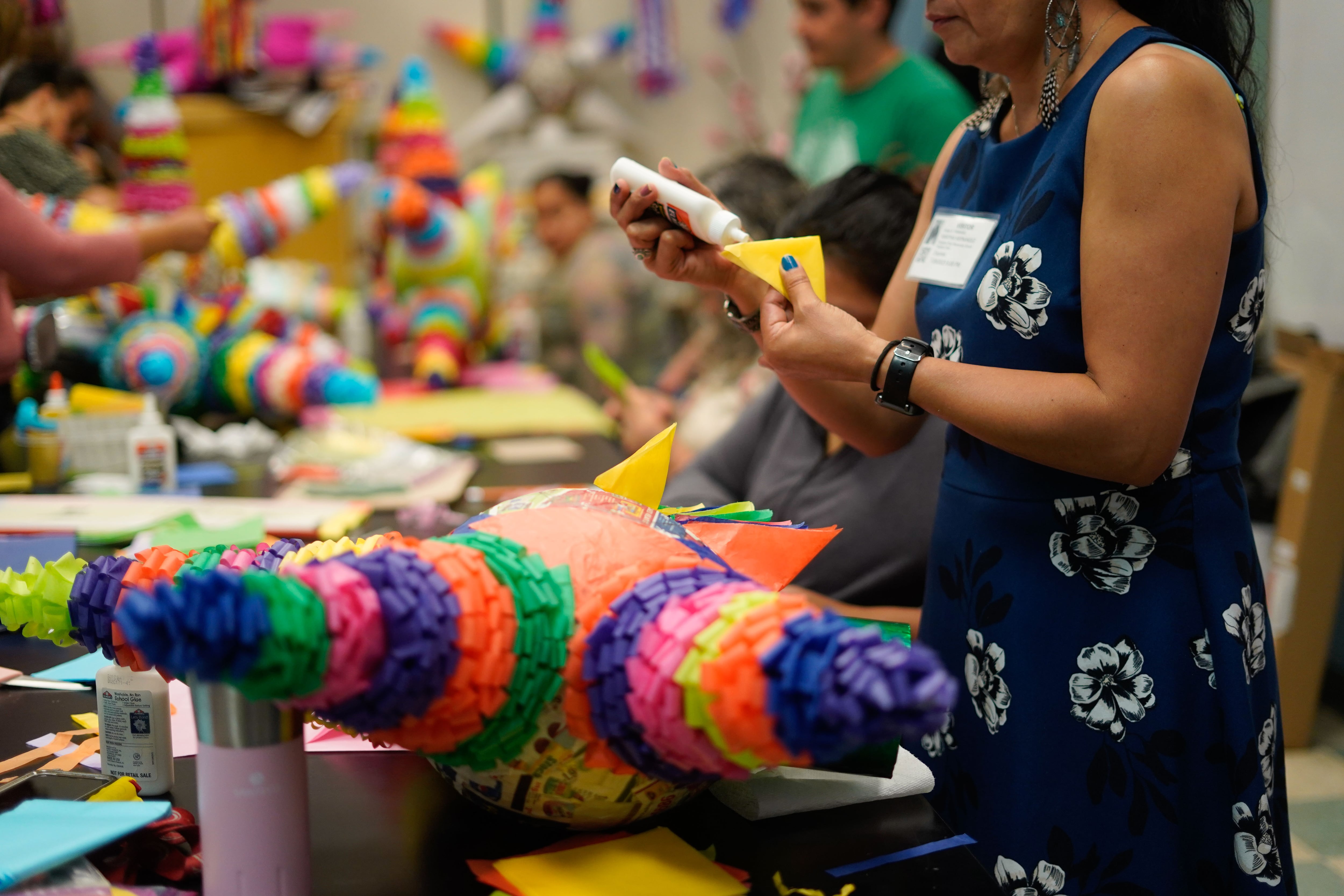Sign up for Chalkbeat Chicago’s free daily newsletter to keep up with the latest news on Chicago Public Schools.
Illinois advocates gathered in Springfield on Wednesday to push the state to release $50 million budgeted for after-school programs this year, saying the delay has cost some workers their jobs and caused parents to lose child care.
The Afterschool for Children and Teens Now coalition, known as ACT Now, is asking for the Illinois State Board of Education and Gov. J.B. Pritzker to distribute the money to after-school providers as soon as possible and continue funding programs in the state’s next budget.
The coalition is also advocating for two bills — House Bill 3081 and Senate Bill 2036 — that would create an Out-of-School Time advisory council to consider how federal and state policies and funding affect after-school programs.
Since funding has been delayed to after-school programs throughout the state this year, over 27,000 students have missed programming and more than 2,000 staff members have lost their jobs, according to the coalition.
Susan Stanton, executive director for ACT Now, told Chalkbeat that the coalition is seeing a “ripple effect” from after-school programs shutting down, with parents losing child care.
A spokesperson for the Illinois State Board of Education said the agency is waiting on “further guidance” from the General Assembly regarding how to distribute the $50 million appropriation since it was “not tied to an existing statutory program.” The funding was not part of the Nita M. Lowey 21st Century Community Learning grants, the spokesperson said.
This is not the first time that after-school programs have struggled to receive funding from the state. In 2023, the ACT Now coalition called on Pritzker and state lawmakers to help fund after-school programs after the state board noticed a projected $12.4 million shortfall for 2024 caused by an accounting error. The error impacted 68 locations. Advocates said at the time affected programs largely served Black and Latino students and students from low-income families.
At a press conference at the Capitol Wednesday, after-school program managers, advocates, lawmakers, and families talked about how the delay in funding has harmed their programs and why after-school programs matter to families.
Syerra Meadows-Haynes, a network manager at the East St. Louis Youth Development Alliance, said her community is “facing a crisis” because of the delay.
“Some program sites have been forced to close their doors, leaving youth without safe, reliable spaces to learn and grow,” said Meadows-Haynes. “We need the government to act now and release the necessary funds.”
Marcela Marquez, a seventh grader from Unity Junior High in Cicero, Illinois, said the after-school program at her school has helped her in many ways, not just academically.
“I have been able to improve my grades, make new friends, and feel like I’m part of something important. They teach us skills that we can use in the future, such as teamwork, responsibility, and caring for others,” Marcela said through an interpreter.
State Sen. Celina Villanueva, a Democrat representing neighborhoods on the southwest side of Chicago, said she sponsored Senate Bill 2036 because she is worried about future funding for organizations in her district that provide programs that largely serve Black and Latino students.
“Without state support, their ability to provide these critical services are at a risk,” said Villanueva at the press conference “With uncertainty at the federal level, Illinois must take the lead in protecting and strengthening after-school programs by investing in high quality out of school time opportunities.”
The budget for fiscal year 2026 begins on July 1 and ends on June 30, 2026. The state general assembly will have to pass a budget by the end of the spring legislative session. The session is scheduled to end on May 31.
Correction 3/20/2025: This story has been updated to show that afterschool advocates went to the state capitol on Wednesday. A previous version of this story said they went on Tuesday.
Samantha Smylie is the state education reporter for Chalkbeat Chicago covering school districts across the state, legislation, special education and the state board of education. Contact Samantha at ssmylie@chalkbeat.org.






